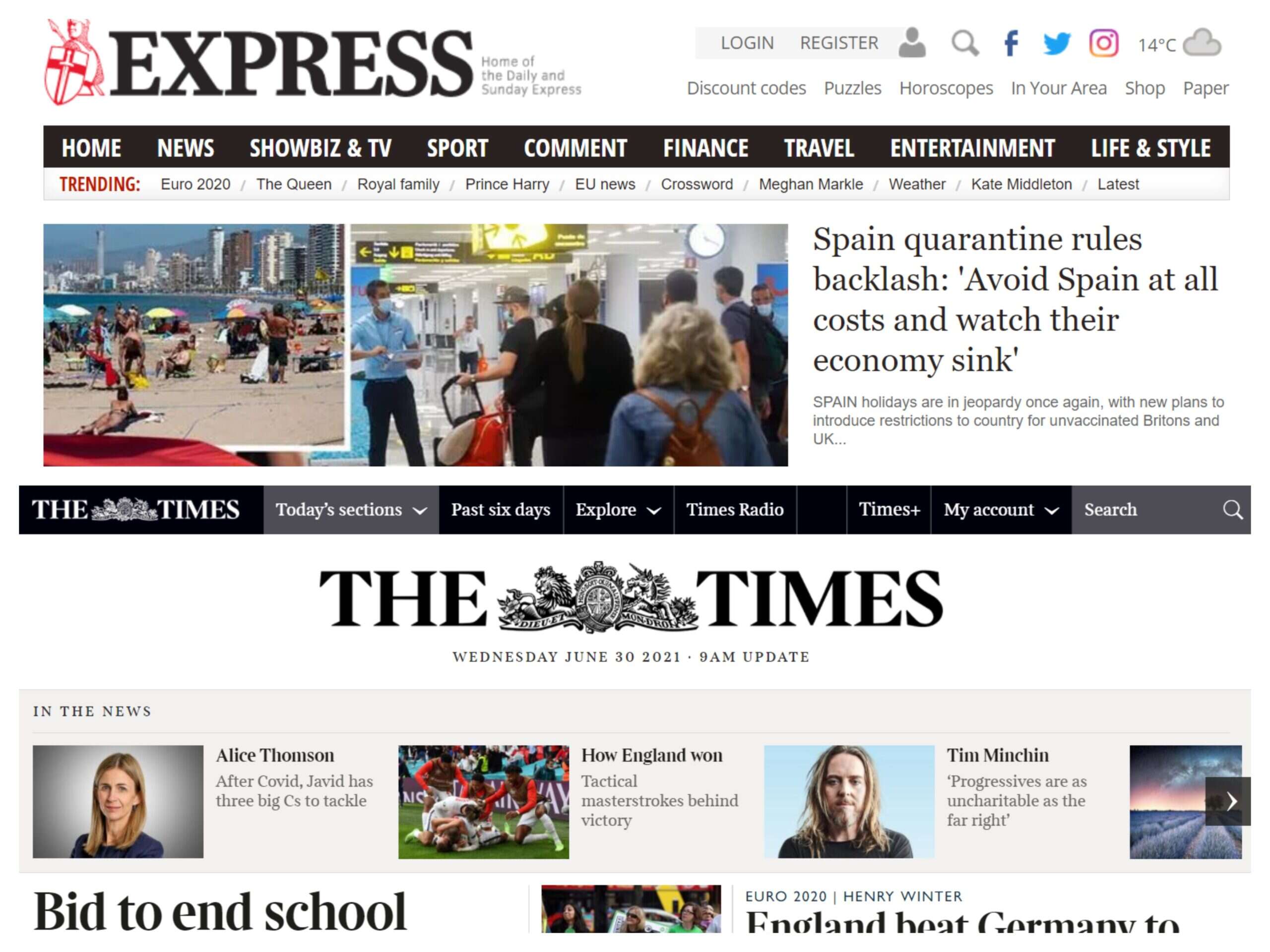
Digital bosses at the Times and Express have warned publishers that don’t “follow the data” will “wither and die”, but emphasised the importance of specific actionable insights.
Former Times and Sunday Times head of digital Alan Hunter, who led the broadsheet’s digital transformation to a successful paid model until his departure this spring, said looking at the needs of the user rather than the producer of the journalism would be a key theme of the next five to ten years.
Hunter told the FIPP D2C summit last week: “We are entering the decade of data and the publishers that do follow the data will succeed and those that don’t I’m afraid will not, they will wither and die.”
[Read more: How Murdoch’s Times paywall ‘big gamble’ paid off]
He added: “It is absolutely crucial that journalistic businesses understand and use data to the best effect. This is the route to prosperity. If you look at all the companies that have succeeded in the past ten years they are all based on data… they are data businesses fundamentally, and we have to become data businesses too.”
Hunter told the panel, chaired by Glide publishing platform founder Rich Fairbairn, that engagement is critical to the Times because it needs to make sure its subscribers spend quality time with the brand and therefore keep their subscription.
The newsroom has tried to move its journalists away from looking at raw data and towards indices based on metrics like dwell time, the number of comments stories get, number of saves, and the number of young readers.
This shows “how well they perform based on how well we expect them to perform” and “appeals to journalists’ sense of fairness because with the best will in the world the bottom story on the site is never going to do as well as the top story on the site.
“We want to give people tools with which to assess their work which they feel comfortable with,” he said.
This is why insight is important over data, he went on: “Journalists are optimistic types so they will always pick the highest data points and there will always be something to prove that their story’s worked. So we’re trying to cut through that noise and give them something that can drive future actions rather than just saying you did amazingly well last time.”
 Free white paper: The Importance of Content in Building Your Brand
Free white paper: The Importance of Content in Building Your Brand
Read New Statesman Media Group’s in-depth white paper report now detailing how to create impactful digital marketing content from inception to finished product.
‘Opportunity of our era if we can crack it’
In contrast to the Times model, the Express is still chasing eyeballs online, although this is now changing slightly with parent company Reach’s customer value strategy which aims to build loyalty and a direct relationship with readers by encouraging them to register with their email.
Digital editorial director Geoff Marsh said: “We’ve been terrible as an industry at viewing readers as customers – they are our customers and we’re dead without them. It is very important that we learn to follow the data and that skillsets evolve to deal with that.”
Marsh said a “very small proportion”, currently around 10% to 15%, go directly to the Express website.
“The rest of it we have to go and fight for every single day,” he said. “And that’s hundreds of millions of users we’re talking about and potentially billions of page impressions so we need to understand the competition, we need to understand the market opportunity, and we need the very best, most up to date data and from that the insights, and we need it fast.
“It is definitely the opportunity of our era if we can crack it – we’ve not been very good at it as an industry and if we can get better at pulling out the actionable insight from the various data sources that we have it can certainly propel the growth of websites dramatically.”
Marsh said he defines insight as data that becomes actionable and tells you what you should be doing and why.
“You can drown in data and insight is the buoyancy aid that can lift you to the surface and give you an edge,” he said.
[Read more: Daily Express Gary Jones says paper has ‘come a long way’ on its journey to be a force for good]
Keyword data is a particular obsession at the Express, which has taken a search-driven approach (other Reach websites focus more on social traffic).
Marsh said the Express had built topic authority: “Once you’ve got a big established domain, building your topic authority in certain areas is absolutely critical to growing on Google and that comes down onto the quality journalism.
“It’s very important to improve the quality of the journalism and in time improve the engagement metrics.”
Marsh said that while 80% to 90% of stories each day at most conventional publishers come out of that day’s news agenda, that is flipped at the Express so 60% to 70% is topic driven.
“We establish well in advance based on the data and the insight which topics we’re going to go after and look for good stories because we know there is an audience for that,” he said.
Marsh’s “dream” traffic split would be 30% Google, 30% Facebook, 30% direct and 10% referral.
A loyal user is worth 300% to 400% more than a Google or Facebook user in terms of page impressions for the Express, he added.
GLIDE ARE THE PUBLISHING PLATFORM FOR MEDIA COMPANIES (PG PARTNER)
Data can be ‘fool’s gold’
But despite being strong proponents of data, both Marsh and Hunter said editors and gut instinct still have an important role to play in choosing and shaping stories and imposing brand values.
Hunter said: “Some of the biggest stories we’ve done you would never do if you looked at the data, and yet they become huge stories that evolve over time.
“I think necessarily they come together. I think there’s been too much resistance to data in newsrooms and that gut feel is an easy get out but now I think people really need to follow the data.
“Being a good journalist is knowing what your readers want, and here, at last, you can prove what they want rather than just guessing or fulfilling your own prejudices in terms of saying ‘well readers like this’.
“That’s easy to say. In a print era you could say it without fear of being contradicted. Now you have data there to tell you exactly what they did like. So it’s always going to be a combination of the two because the editor ultimately sets the direction and talks about how they want topics covered but then there’s the data to show whether they were right to do that or not.”
Marsh agreed there were “lots of very successful stories we wouldn’t have touched with a bargepole had we just followed the data so the data can be fool’s gold on occasion and part of the gut feel is having the sense of when that might be”.
Email pged@pressgazette.co.uk to point out mistakes, provide story tips or send in a letter for publication on our "Letters Page" blog






